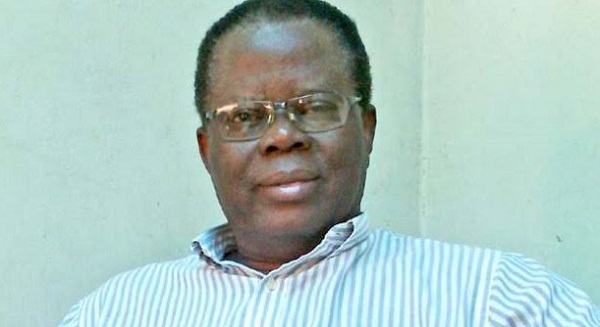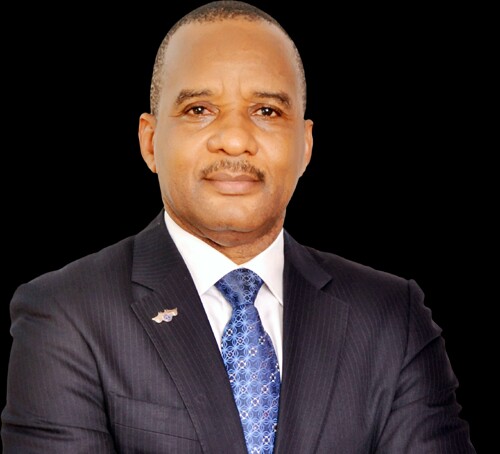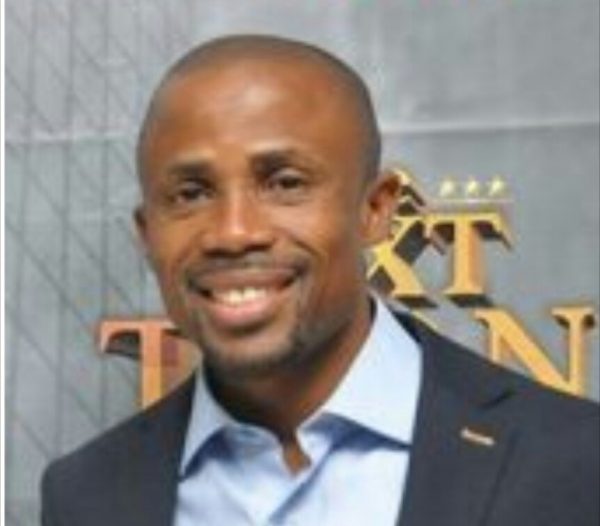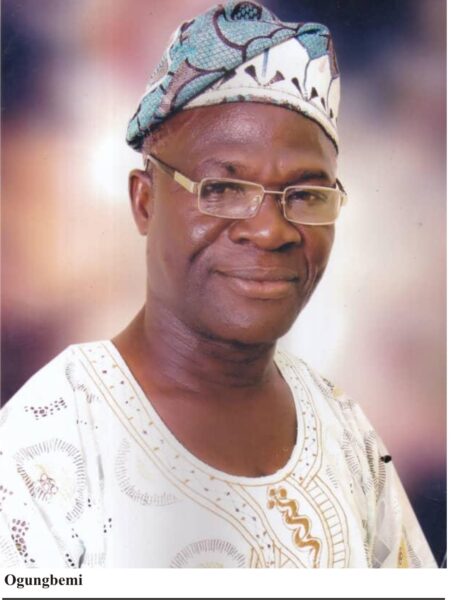We Need To Harmonize Blue Economy Guidelines- Dr. Mogo
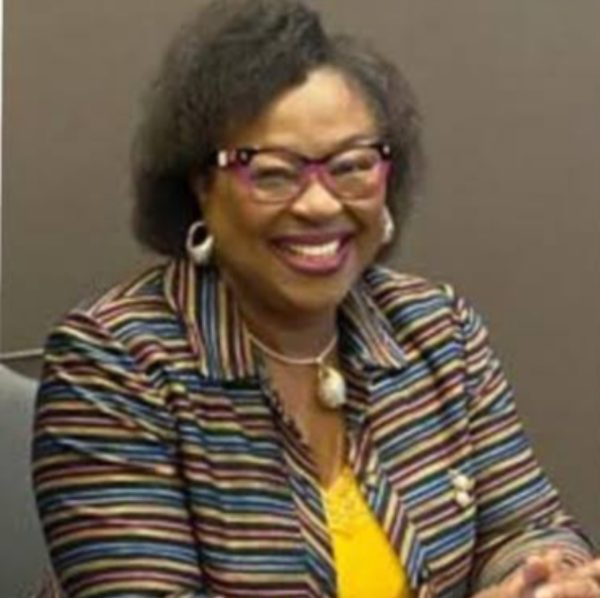
Success is sometimes defined as preparedness meeting opportunity. And this is largely applicable in this case where Dr.Mrs. Felicia Chinwe Mogo helped to domesticate the concept of Blue Economy in Nigeria. She had been prepared to handle blue economy as an emerging initiative for sustainable ocean management before its global acceptability.
Dr. Chinwe Mogo is the Founder/ President of the African Marine Environment Sustainability Initiative (AFMESI), a non- governmental and pan-AFRICAN organization aimed at achieving clean oceans and sustainable Blue Economy in Africa. She is currently an Expert stakeholder to the Nigerian Maritime Administration and Safety Agency (NIMASA) and Federal Ministries of Environment and Marine and Blue Economy, Nigeria amongst others. She is credited to have brought Blue Economy agenda as an emerging area of sustainability for the Federal government of Nigeria. She is the coordinator of the Expanded partnership Committee on the implementation of Blue Economy in Nigeria in the office of the Vice President. She is a member, Group of Experts, United Nations Regular process on Global Reporting and assessment of the state of the marine environment and socio-economic aspects for the third cycle, Division of Ocean Affairs and Law of the Seas (DOALOS), United Nation, NY.
In her days as a member of Nigeria’s delegation to the International Maritime Organization (IMO) official meetings, she earned the country several recognitions. She submitted many IMO accepted position papers on behalf of Nigeria. She was elected in 2013 as a member of IMO Expert Compliance Group on London protocol on prevention of dumping of waste and other matters in the marine environment representing West and Central African Anglophone countries. She chaired the Group for two consecutive sessions and was re-elected as a member for three sessions. She remains a focal point on adapting the IMO’s conventions to the Nigerian and African context. She was elected a member of the United Nations Group of Experts on Scientific Aspects of Marine Environmental Protection (GESAMP) as a candidate of IMO under the sponsorship of UNDP. She is also, member, Ocean Coalition 2030,a high level panel on Oceans, World Resources Institute, USA as well as an Author of the book: Regulating the Blue Economy of Africa towards Sustainable Blue Economy: The Nigerian Scenario.
Dr Chinwe Mogo holds a PhD in Ecology/Ecotoxicology from the University of Port Harcourt (2002), an MSc in Environmental Science and Technology from IHE, Delft, The Netherlands and a BSC in Biological Sciences-Botany, University of Benin.
In this interview with MMS Plus, Dr. Mogo gives an insight to the Blue Economy journey in Nigeria; what needs to be done with the new Ministry and the potentials. The Ministry has been accused by stakeholders of being rudderless in Blue Economy planning and implementation. What does she have to say?
She spoke with KINGSLEY ANAROKE. Enjoy her passionate flow of expression.
Would you say you feel fulfilled that your efforts at defining and creating awareness about the Blue Economy later crystalized into a full ministry under this political dispensation? Can you let us into this journey again?
Actually, I always react to that fact when people ask me, oh Dr. Mogo, how do you now feel that the ministry, the Blue Economy that you have been pushing for some time has now culminated into a full ministry? I always respond by telling them that to me it’s a mission accomplished, you know, by God’s grace.
And I will continue to the best of my ability support the cause of inclusive sustainable blue economy in Nigeria and Africa.
Through my NGO, the African Marine Environment Sustainability Initiative (AFMESI), my Team now have some professional networks both at United Nations (UN) level and other Regional and Global agencies , organizations individual Experts. We are endowed with lots support of support based on trust. We use all these opportunities and experience and knowledge together with good will to the benefit of Africa and Nigeria in particular being our host country. I’m proud of being a citizen of Nigeria and that of Africa. It feels so good. To push for Blue Economy appreciation, AFMESI held two consecutive annual symposia on Blue Economy. The last has the title: African Blue Economy, which Way to Go? It’s as if Nigerian government answered with the establishment of Federal Ministry of Blue Economy.
The story of establishment of the Ministry, so to say, you know, the institutional memory there is that NIMASA celebrated Africa Day of Seas at Ocean in 2018 and it was agreed by management that I should chair the committee, planning committee to that effect. That was when Dakuku Peterside was the director general. I asked the DG, if I could choose a theme?
He said,” Yes, go ahead”.
So I chose, Partnership: Key to Sustainable Blue Economy Implementation in Nigeria.
He okayed it and gave me the free hand to nominate committee members and facilitators. We had committee members amongst who were Ikenna Nwachukwu and others.
I’ll give you the list if you want. We now went ahead to nominate the chair, Greg Ogbeifun. The NIMASA board members were around. Major General Garba was around.
At the end of the day, after the event, when we were about departing, I told the chairman that, oh, we won’t leave without really having a way of advancing the outcome of the workshop, that I wouldn’t be happy. He asked what I wanted. I. I I said we should have a committee to drive it.
That’s how a committee that was called implementation Committee for Blue Economy in Nigeria came up with the approval of the then DG- Dr.Peterside and with Major General Jonathan India Garba as the chair and myself as the Administrative Secretary.
We continued working and we saw that what we were really doing will really turn around the cause of Nigerian utilization of ocean resources. Subsequently, we went for the world first global conference on Blue Economy hosted by Kenya in December of the same year.
We went to Kenya, myself, the DG, the chairman and some other members of staff.
In Kenya, we were inspired by the outcome of the Kenyan conference, we came back again and requested to have a political buy in. We then prepared a memo to expand the committee and it was pushed to the parent ministry in the days of Rotimi Amaechi as the Minister and to the presidency. And it was in 2022, January, a committee, the expanded committee kicked off in Aso Rock and I was still made part of the committee though I’ve retired and in fact, I was a milestone as it was recognized that Dr. Mogo started this and with my book also they shared, they were really happy to have me around.
And then at the end of the day the Vice-President then approved that instead of two thematic areas that we recommend for its expansion. So, more thematic areas were added to it. So I was made the chair of the technical committee.
That’s how the technical committee now included oil ministries, departments and agencies.
And we came up with eight thematic areas based on opportunities in Nigerian marine environment including river systems, mangrove, and underground water, cognizance of the barriers and opportunities as well as the roles of multiple stakeholders in operationalizing the plan.
We had a private sector representative, had ministries, departments and agencies and eventually, as God will have it the. Ministry of Transportation then, now of Marine and Blue Economy made me the Anchor Consultant to Blue Economy project. It’s a kind of an in-house consultant and I participated a lot in training the ministry people hoping for a transition but we did not really know how the trajectory will take. And I am so happy that under this administration it was announced that we now have the Ministry of Marine and Blue Economy.
I have continued to work with the Ministry. We have organized retreat for them and I still interface with them and I pledge to continue to support this cause given the network I have. It will give us a good opportunity to domesticate the ideas I get outside in Nigeria. It is really remarkable to say that Nigeria is one of the few countries that have a full-fledged ministry for Blue Economy different from Transportation. And that gives the Ministry a leverage on focusing on ocean issues and related matters. Many countries applauded the idea when I mentioned it in some of the external meetings I have attended since its creation.
Can you say briefly the role AFMESI played in positioning the Blue Economy in Nigeria? And how does it intend to collaborate for future activities?
Like I said, I was part of the retreat in January, 2024 as Anchor consultant. Since I am involved now in what is happening, AFMESI is involved. I know that the Ministry is working assiduously to developing the necessary policy documents including the guidelines to effectively drive her mandate. It is also working on other instruments of intervention and statutory documents that are internal to them. I know that all these things will be activated very soon. But pockets of all that have been developed it is just to harmonize them and ask for stakeholders’ input. I am aware that everyone that has input to make will will have the opportunity in view of how the Honourable Minister, His Excellency Adegboyega Oyetola Considers stakeholders inclusion as very important.
There is a suggestion that the Blue Economy project should be domiciled in the Presidency. At this point, should it be domiciled there as the coordinating point or should there be an agency to that effect if indeed the idea is workable?
The establishment of the Federal Ministry of Marine and Blue Economy in Nigeria is unique and removes the administrative bottlenecks of having it under the Ministry of Transportation. The new Ministry can focus now on specific matters concerning blue economy.
It must not be domiciled in the Presidency. Some countries do that though as you said. However, in view of the high level political nature of the Blue Economy, the Ministry in Nigeria’s case can be reporting to the Presidency on dotted lines.
The efforts of AFMESI is well recognized as I said earlier even more at Regional and Global levels and we are working with World Resource Institute(WRI) now, WRI admitted AFMESI as a member of Ocean Coalition 2030, where we have the responsibility of implementing ideas on Blue Economy in our region. Recall that we had been engaged by some arms of the United Nations. As we explore all these privileges, they provide the opportunity for other African countries to benefit from what we know and are doing.



